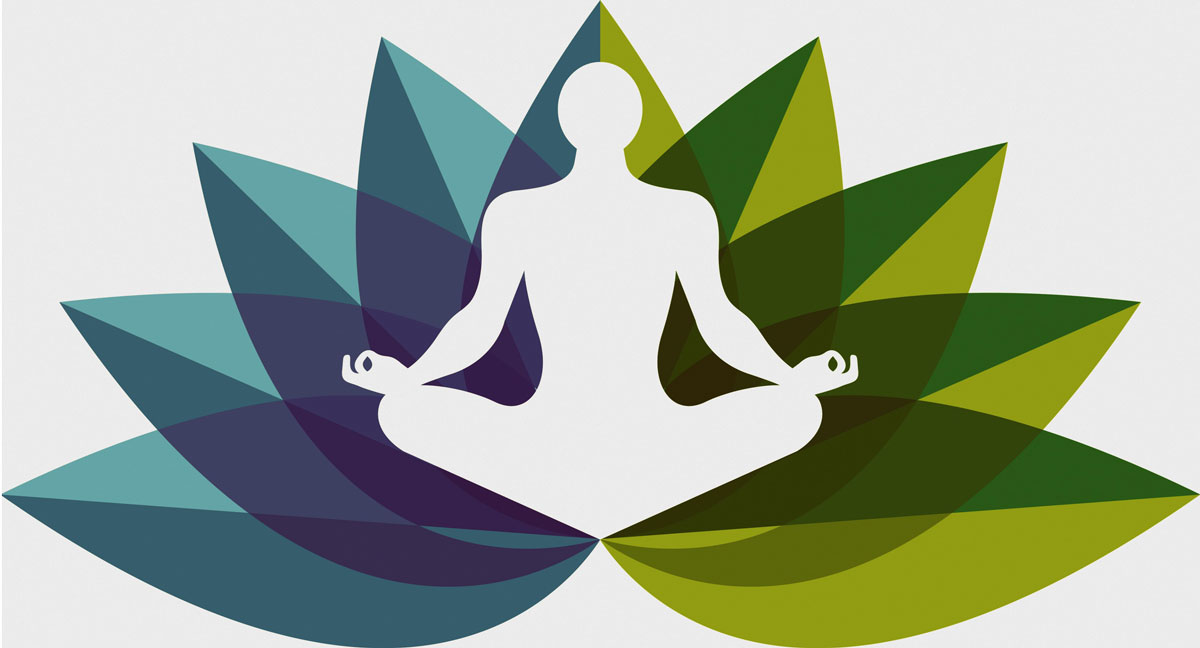The Mental Health Benefits of Yoga

Traditionally, yoga poses or “asanas”, were developed and practiced in India to help the body and mind develop flexibility during long hours of meditation. What many people don’t know however, is that yoga is about much more than physical fitness alone. It is a holistic system with the physical component of asanas only forming one out of eight limbs of a complete yoga practice. Yoga means “to unite”, referring to the union of body, mind and spirit. It is a science of balanced living, a path for realizing full human potential, and a tool to cultivate the ability to remain centered in the midst of turbulence.
Life’s stresses indeed cause many people to feel emotionally unbalanced. When we are stressed, our survival instinct kicks in and the body goes into the fight or flight response mode— either preparing to do battle with the perceived threat (fight), or preparing to flee (flight). This response is regulated by the brain, in the region called the amygdala. Among the body’s responses to stress are increased heart, respiration, and blood pressure rates and decreased immunity and insulin production.
Without a healthy way to release daily stress, it becomes internalized and fight or flight becomes the body’s customary response. Over time, this can cause damage not only to the body, but also to the mind. Research shows that constant stress actually changes the brain. For example, stress can lead to a stronger connection between the amygdala and the hippocampus. A stronger connection of these two brain areas leads to increased stress response. Stress has also been shown to diminish the connection between the hippocampus and prefrontal cortex, thus altering the brain’s ability to bring calm to the mind and body. When a person is under constant stress, these imbalanced brain connections can cause a greater reaction to stress and a more challenging time mitigating that reaction.
Yoga, including asana and meditation practices, can help ease these physiological stress responses by helping to bring down heart rate, blood pressure and by boosting the immune system.
In his article, “Healing from Depression” Dr. Deepak Chopra discusses some of the benefits of meditation. In terms of mental health, he explains that studies have shown mindfulness meditation to alleviate mild-to-moderate depression and stress.
As noted by Dr. Chopra, the healing effects of yoga, particularly those of physical asana and meditation practice, are supported by empirical research. According to a Johns Hopkins University study, meditation has been proved to be helpful in reducing anxiety, depression, and pain. In 2011, Harvard researchers discovered that eight weeks of meditation could decrease the volume of the amygdala, which in turn, could help reduce stress, fear, and anxiety. Stanford researchers also discovered in their studies that mindfulness meditation practitioners experienced a decrease in the symptoms of social anxiety.
A Duke University review of yoga for neuropsychiatric disorders tested the belief that regular yoga practice had a positive effect on emotional wellbeing. At the conclusion of their experiment, researchers stated, “There is emerging evidence from randomized trials to support popular beliefs about yoga for depression, sleep disorders, and as an augmentation therapy.”
Studies have shown that yoga asana practice helps reduce the symptoms of conditions such as post-traumatic stress disorder (PTSD) by increasing an individual’s sense of awareness and control over the body. One study of women aged 18 to 58 compared the impact of Trauma-Informed Yoga versus Women’s Health Education on PTSD symptoms. Results showed that by the end of the 10 weeks, more than 50 percent of the yoga practitioners no longer met the criteria to classify them as having PTSD, while only 21 percent of the group in women’s health classes exhibited the same results.
Shedding light onto how meditation may be helpful in all these areas of mental health, Dr. Deepak Chopra explains that meditation trains the mind to develop a witnessing awareness that is independent of the external environment.
“This core self is not a philosophical or theological concept; it is an experience of your authentic existence,” Dr. Chopra states. “With an established sense of the silent witness, it will be easier to not become identified with the darkness of your depressed days.” Essentially, cultivating this observer state of mind through meditation allows you recognize that you are not your emotions.
At Paradise Valley Healing Center, we offer yoga classes on a daily basis as a fundamental tool to support the holistic healing approach aimed at promoting balance and integration of body, mind, and spirit. Much like meditation, the benefits of yoga go beyond the purely physical to cultivate greater emotional balance in our lives.
We look forward to uniting in Yoga for Peace, Harmony and Health!
